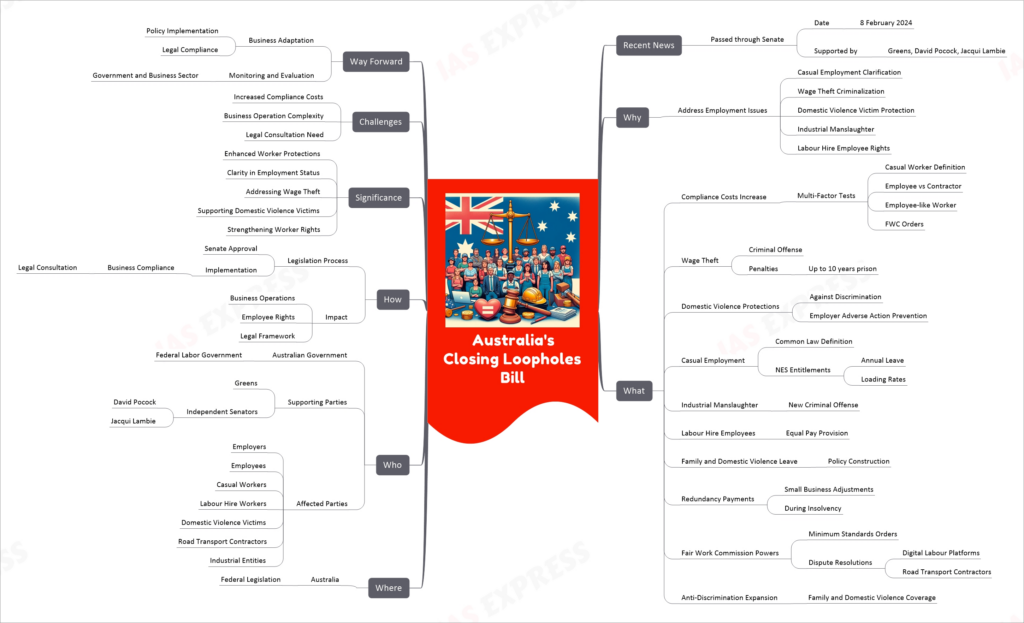Australia’s Closing Loopholes Bill

The Closing Loopholes Bill in Australia, passed in February 2024, represents a significant overhaul of the country’s industrial relations framework. The legislation aims to address key employment issues, including clarifying the definition of casual employment, criminalizing wage theft, protecting domestic violence victims, introducing industrial manslaughter as a criminal offense, and ensuring equal pay for labour hire employees. It also expands the jurisdiction of the Fair Work Commission and anti-discrimination provisions. The bill’s passage, supported by the Greens, David Pocock, and Jacqui Lambie, signifies a major shift in Australian employment law, emphasizing enhanced protections for workers and greater clarity in employment status, albeit with increased compliance costs and operational complexities for businesses.

